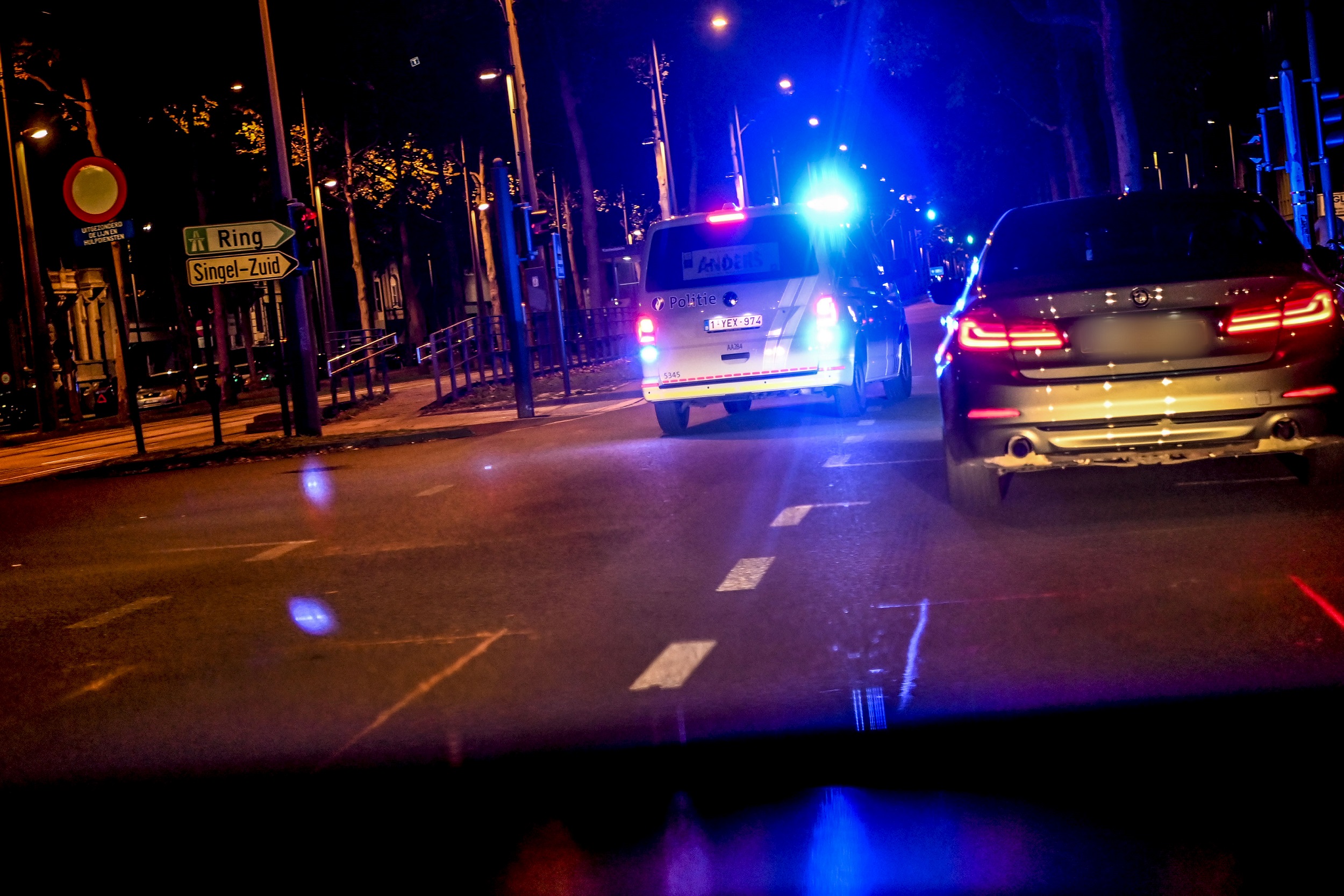In a Brussels bar in 2016, a Belgian policeman was describing the investigations into the ISIS terror group that was conducting attacks across Europe at the time, when he paused and suggested there was an even more dangerous security issue developing in the ports of Belgium and the Netherlands.
“You might be looking at the wrong group of guys,” he said about ISIS, which had drawn thousands of fighters from Europe’s immigrant communities. “Look at the cocaine cartels in the ports.”
It seemed a bit much considering attacks across France and Belgium had already killed hundreds, so I suggested the link between newly recruited jihadists and petty crime, which had been a repeated theme in the mostly young men who’d left for Syria and Iraq to fight. But the cop was dismissive.
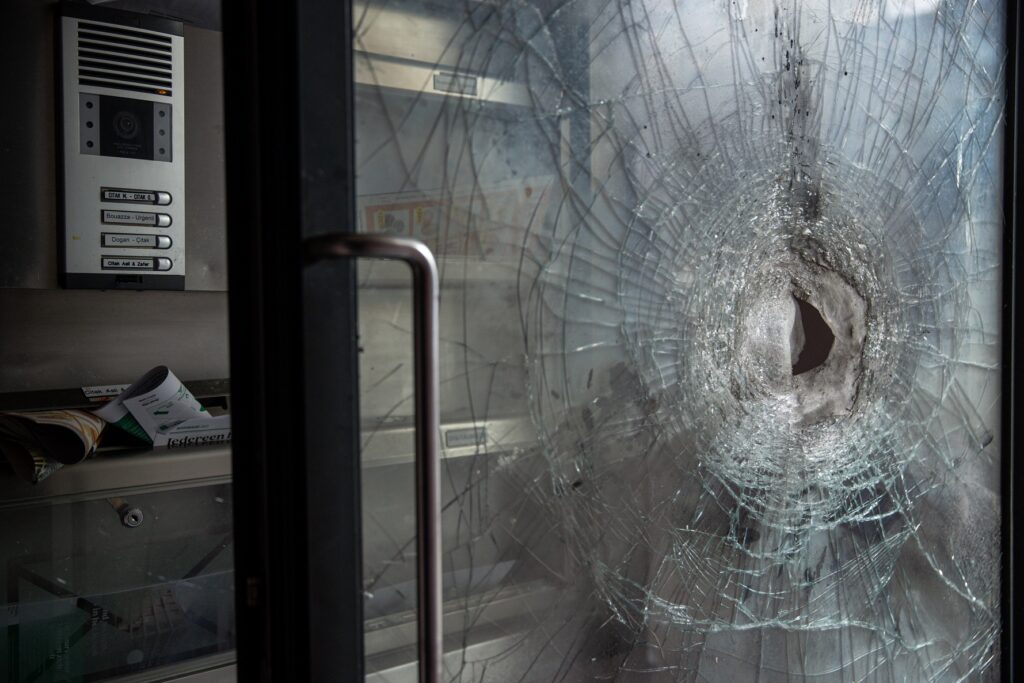
The scene of another shooting incident in Antwerp, January 2023
Most of the fighters headed to Syria were from Brussels and even France, he said. Antwerp produced only a small portion of the jihadists from the same immigrant communities and the reason, the cop said, was the rise in cocaine arriving in the ports of Rotterdam and, particularly, Antwerp. The Brussels guys were small time but in Antwerp, there was something more alluring and lucrative than jihadism underway. “Long term, this is more dangerous than terrorism,” he said.
Cocaine gateway
Six years on, Antwerp is the gateway of choice for cocaine into Europe. In 2023, Belgian customs seized a total of 116 tonnes of the Latin American drug in the port, setting a new record. Add Zeebrugge and the figure is 121 tonnes, with a street value of more than €9 billion. Belgium accounts for around 40% of all cocaine detected in Europe, but seizures likely represent only 10-20% of the total amount of the drug in circulation.
Indeed, Antwerp authorities have seized so much cocaine that they are struggling to dispose of it: incinerators can only process 1,000 to 1,500kg per session before the cocaine damages the filters.
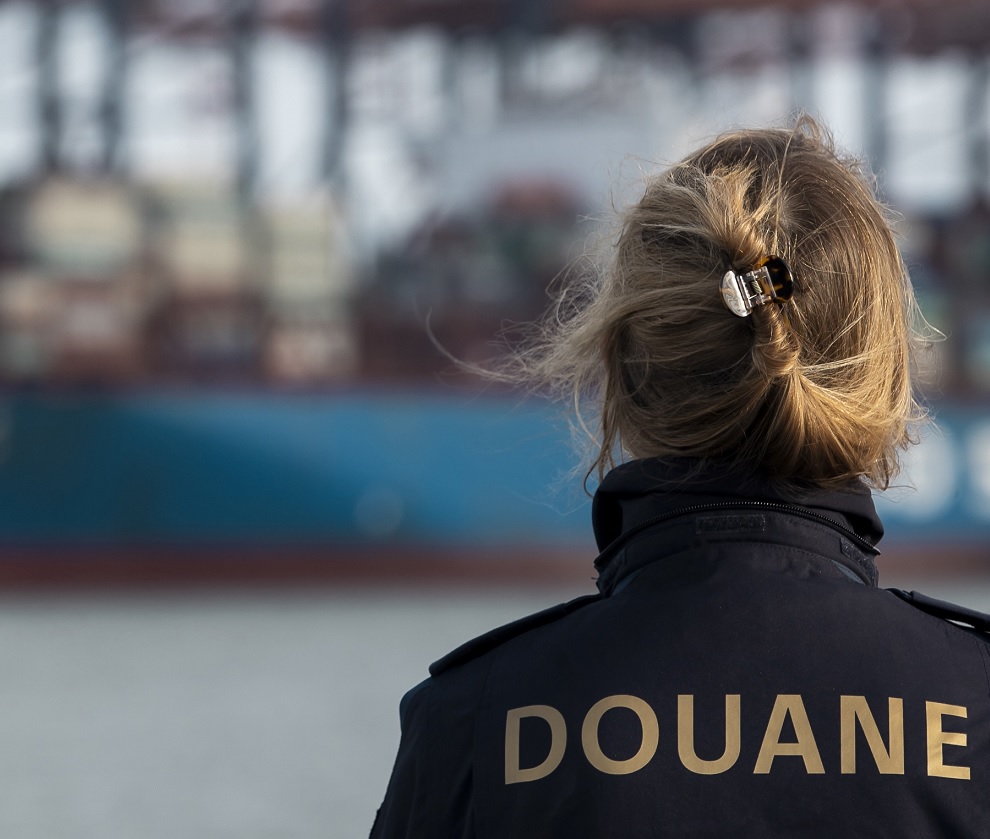
Belgium accounts for around 40% of all cocaine detected in Europe
But the gangs won't give up without a fight, and port workers have been targeted as criminal networks in Belgium turn to increasingly violent measures to regain intercepted cargoes. Hundreds of serious incidents have been reported in Antwerp over the past decade, including shootings, grenade attacks, fires and small bombs, many linked to gangs trying to carve up the thriving cocaine trade. In January, 22 people, including three police officers, were arrested in a major anti-drug bust targeting individuals suspected of smuggling cocaine through the port.
Last year, these gang wars claimed the life of an 11-year-old girl caught in the crossfire. She was the niece of one of Belgium’s top accused drug traffickers, Othman el Ballouti, who is alleged to run a massive cocaine smuggling operation through Antwerp’s port from the safety of Dubai, which has been reluctant to arrest and extradite Belgian suspects.
Former Justice Minister Vincent Van Quickenborne spent some time in hiding after evidence emerged that drug gangs might be seeking to kidnap him, or worse. In an interview with The Brussels Times Magazine last year, Van Quickenborne said fighting them was Belgium’s number one national security priority. “We have entered a new phase of narcoterrorism in our country,” he said. “I think it will get worse, and I’m afraid that more tragedies will follow.”
Antwerp Mayor Bart De Wever has called on the army to police the port – although this was quickly dismissed by the federal government, with Interior Minister Annelies Verlinden saying that “the army isn’t properly equipped or trained to deal with this,” and Van Quickenboure adding, “You don’t want to live in a country where the army replaces the police.”
The war on drugs is one of Belgium’s priorities for its EU Council presidency. On January 24, at an informal meeting of EU interior affairs ministers in Antwerp, it launched the European Ports Alliance to attempt to engage private port and shipping companies from across the bloc in the fight against drug trafficking.
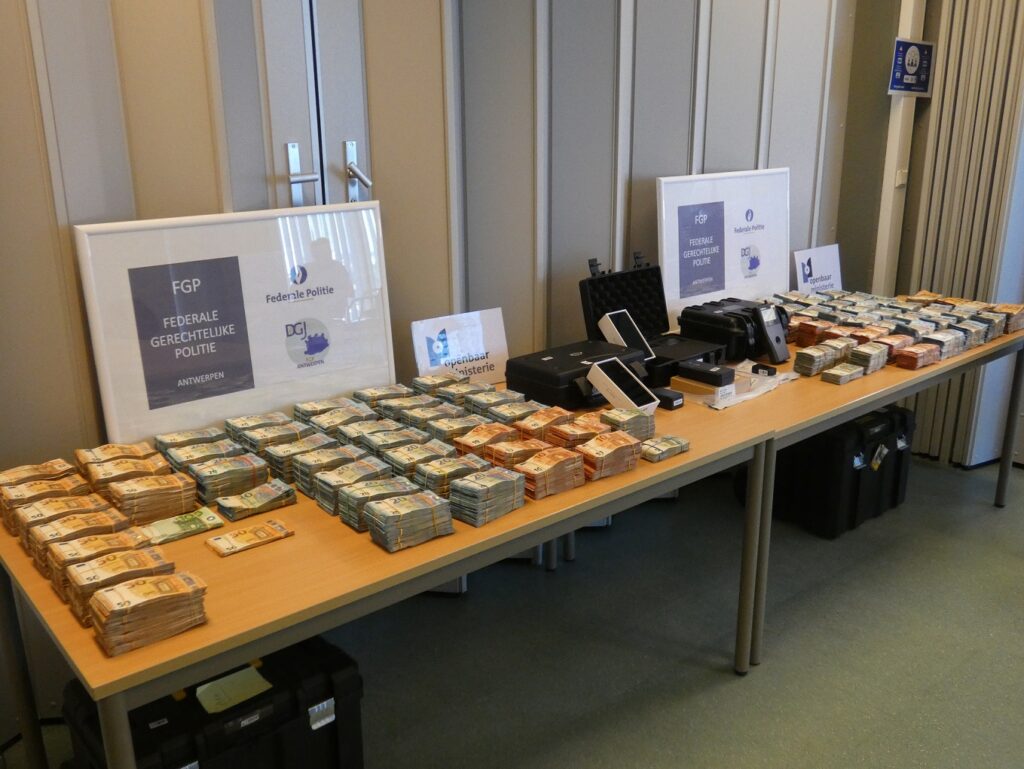
Hauls from raids of gangs that uncovered stashes of cash and drugs
There have been some notable successes. In December, a special Belgian court began hearing cases of more than 120 people charged with drug and arms trafficking, extortion, acts of torture and attempted murder. The trial, taking place in former NATO headquarters, is huge in scale and follows a government hack of Sky ECC, the end-to-end encrypted messaging system used by drug kingpins, port workers, crime families and all their lawyers.
Global supply chains
Most of the drugs originate in Colombia, as well as Ecuador, where the governments have declared a state of war against drug gangs. Several large Colombian cartels, such as La Cordillera – founded 20 years ago by paramilitary commander Carlos Mario Jiménez – prefer Antwerp. They sometimes use speedboats and submarines to get the drugs onto the ships that eventually arrive in the port. In one instance, members of Clan del Golfo, the largest drug cartel in Colombia, climbed aboard container ships to load up 820kg of cocaine destined for Antwerp.
The drugs are usually hidden in containers together with other bona fide products like bananas, sugar and timber. Retrieval is often left to 15-year-olds who are offered €100 to sneak over a fence and break out the cocaine – if caught, they face trespassing fines or, at most, juvenile charges.
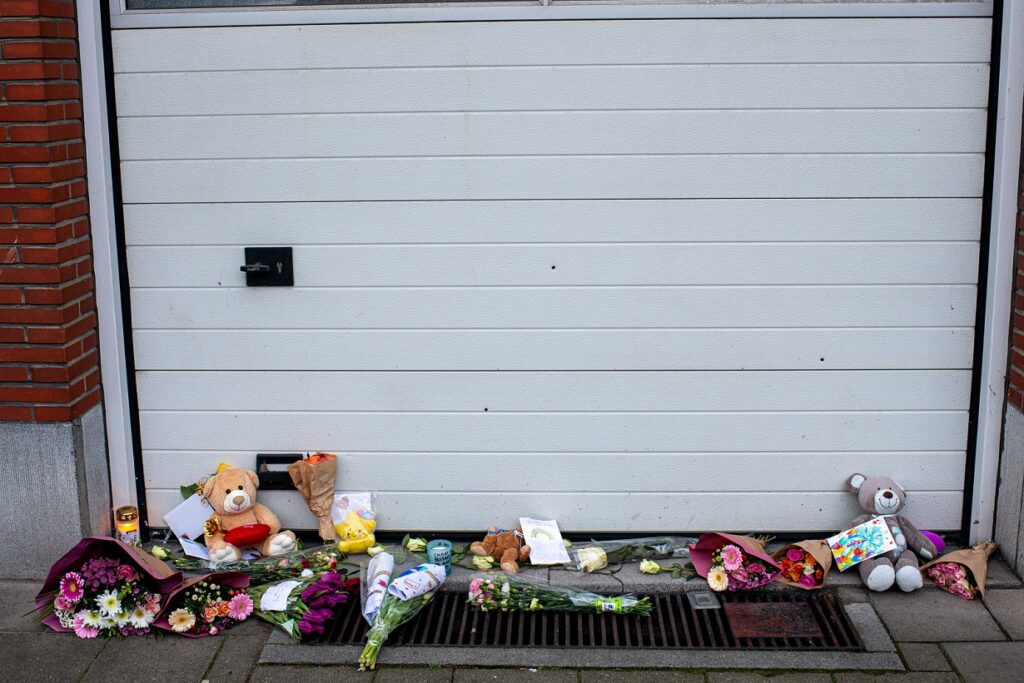
Flowers laid at the location of where an 11-year-old girl was killed in Merksem, Antwerp in January 2023
The global supply of cocaine has grown in recent years, matched by a sharp rise in demand, a recent United Nations report said, while also confirming that Belgium is at the heart of Europe’s €10 billion a year cocaine market.
Once the drugs are unloaded, local cartels take over the processing and distribution, with Moroccan gangs dominating. Four-fifths of the drugs that arrive in Antwerp are subsequently transported across the border into the Netherlands to be cut, packaged and distributed across Europe. There are deep links between the Dutch-speaking Moroccan diaspora in Belgium and The Netherlands. They have also led the way in a spree of murders of rivals as well as lawyers, witnesses, journalists and bloggers.
While the gangs are interlinked, a series of high-profile arrests in the Netherlands, including the Dutch-Moroccan cartel boss Ridouan Taghi, who is facing life in prison for drug trafficking and multiple murders, have only raised the profile of the Antwerp-based gangs, who face less law enforcement pressure than their Dutch colleagues.
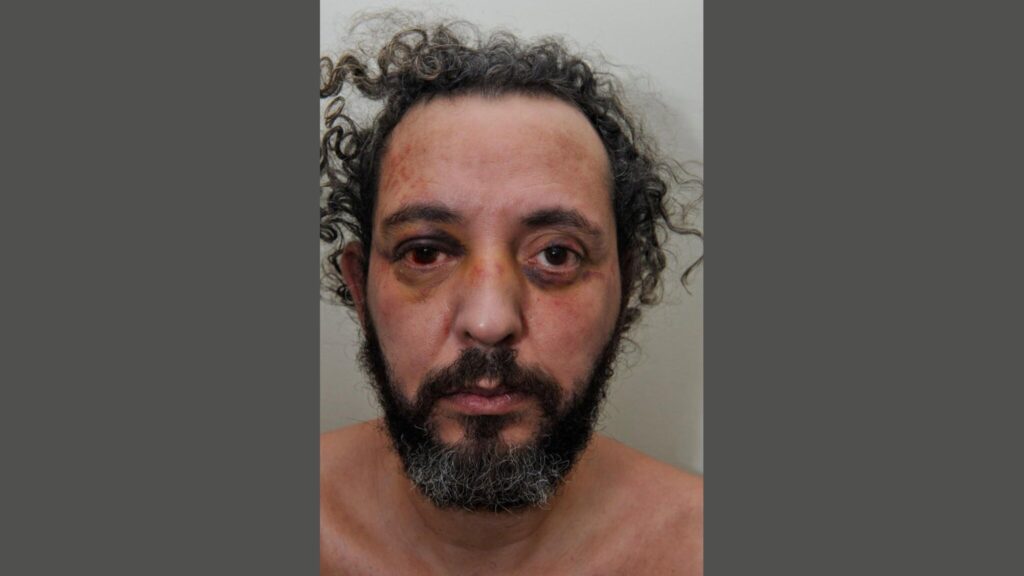
Drug kingpin Ridouan Taghi
But little progress has been made in stamping out Europe’s cocaine market as the key heads and operators of the cartels can live with near impunity from extradition in places like Dubai and Turkey. With at least a dozen well-known fugitives including the Irish Kinahan crime family, the infamous Balkan ‘Tito and Dino” cartel, indicted Antwerp traffickers Othman B and Nordin H, all allegedly taking refuge in Dubai, the United Arab Emirates (UAE) consistently slow-walks or outright ignores requests for arrests and extraditions from Belgium and the Netherlands.
Belgian officials say there should be more European pressure on the UAE. They say Italy, Spain, Germany and France also have a wish list of people hiding in places like Dubai but cannot be sent to Europe because the UAE has refused to accept any extradition arrangements.
Turkish immunity
One European counter-terrorism official – who cannot be identified – said the willingness of the UAE, and more recently, Turkey to offer a safe haven to fugitives is a complete reversal of the cooperation seen during the war on terror. “I could not imagine calling Dubai and Ankara with firm evidence of terrorist activity by someone and not see them picked up,” they said. “Yet when it comes to cocaine cartel bosses moving tonnes of drugs through Belgium and the Netherlands, people suspected in multiple murders, there’s barely a shrug.”
The official connected this lack of cooperation to two main factors: lack of pressure from the United States to act on European requests as well as cynical corruption. “Belgium or Ireland don’t have enough geopolitical leverage against the UAE and the US has its own priorities that have become even more complicated with the war in Ukraine,” they said. “Plus, it’s clear local authorities require large payoffs from traffickers, require exorbitant cash bail and if the suspect is eventually arrested, end up keeping all the local property. Turkeys formalized the process even more clearly. Everyone is making lots of money at this.”
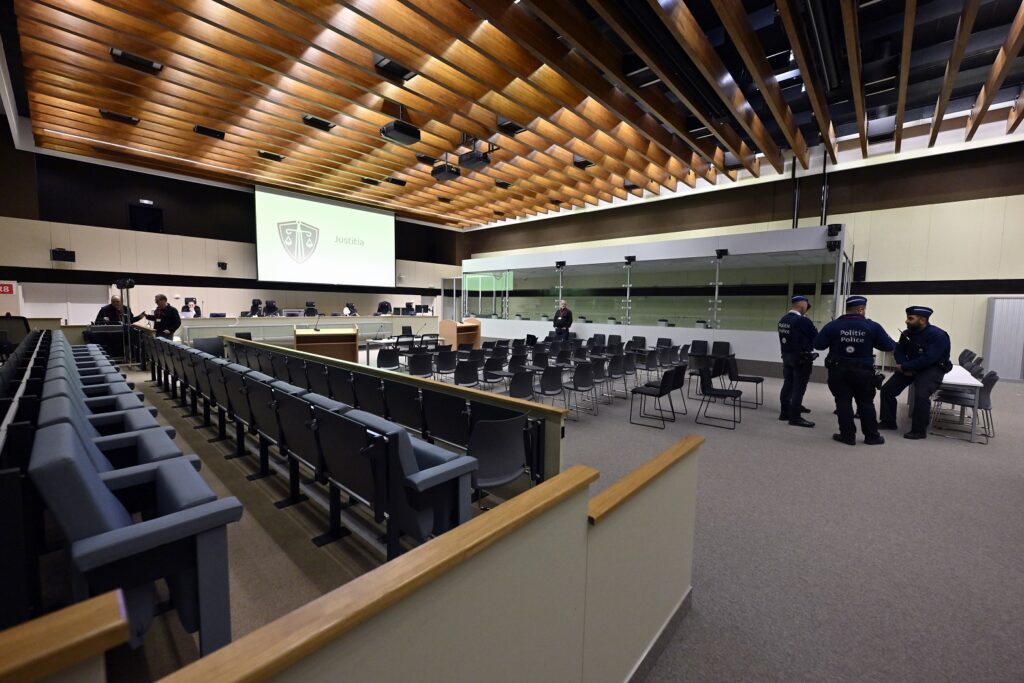
Brussels court for a trial on a large drug case featuring 129 defendants that came to light after the decryption of encryption softwares Encrochat and Sky ECC
With Ankara still grappling with a financial crisis, the government has pursued an all-out effort to attract foreign investment and $500,000 qualifies almost anyone for Turkish citizenship. Turkey also doesn’t extradite citizens. While accused Turkish gangsters have long enjoyed this protection – assuming they stay on the right side of the government – a Balkan police official said the past few years have seen the arrival of the leadership of multiple Balkan cartels wanted on charges throughout Europe.
“The Moroccan mafia is powerful but gets most of the media attention in Europe because it’s a highly visible immigrant community,” said one Balkan official, who asked not to be identified for security and political reasons. “But the cartels run by Serbs, Bosnians and Albanians are just as powerful and dangerous, if not even more so…And every major suspect we are investigating, whether for cocaine trafficking, money laundering or even murder has a direct connection to either Belgium or the Netherlands. At minimum legal residency but often even second passports. And with Turkey offering citizenship, many are getting third passports they think can protect them.”
The nexus of Turkey, the Balkan cartels and the Northern ports became clear last July after Turkey refused to extradite two suspects with newly minted Turkish passports to Belgium to face trial for allegedly smuggling 3.2 tonnes of cocaine through Antwerp’s port from 2020 to 2022.
Sani M, of Bosnia, and Albanian Flamur S, alleged members of the Serbian-Montenegrin Skaljari cartel, were facing arrest in Bosnia and Serbia after Belgian prosecutors provided detailed evidence of their involvement in trafficking obtained in the SKY-ECC phone hack, when late last year, they both disappeared only to resurface in Istanbul earlier this year.
And having received Turkish citizenship – despite Interpol red notices filed by Belgium – Turkey informed Belgium in July the pair can’t be extradited.
Cartel rivalry
The Skarlaji cartel isn’t alone in Istanbul: it’s also home to the leadership of their bitter rivals from Montenegro, the Kavak clan. The rival cartels, who originally hailed from the same mountain village, have waged war for half a decade leaving about 50 dead across Europe and South America. The 2022 murders of two reported Skarlaji bosses in Turkey led to the arrest and trial of several Kavak leaders, but Belgian officials remain sceptical about Turkey’s commitment to clamp down on them.
“The arrests and trial appear to be more a warning to the gangs not to commit murders in Turkey than some effort to crack down on the Golden Visa program,” said the Belgian counter-terrorism official. “The message seems to be that they’re safe from being sent to Belgium for trial but will face jail if they cause chaos in Turkey.”
And the Balkan police official suspects that eventually, Turkey will be less accommodating to individual gangsters, as they run out of money and can no longer pay officials to protect them. “Once these suspects face more international pressure and see their assets seized around the world and start to run out of money to pay for protection, I think we will see the Turks starting to find ‘mistakes’ in the more problematic citizenship applications but right now they seem content to collect off these cartels,” he says.
Mitchell Prothero’s podcast series, ‘Gateway: Cocaine, Murder, & Dirty Money in Europe’, is available to download on Apple Podcasts and Spotify

